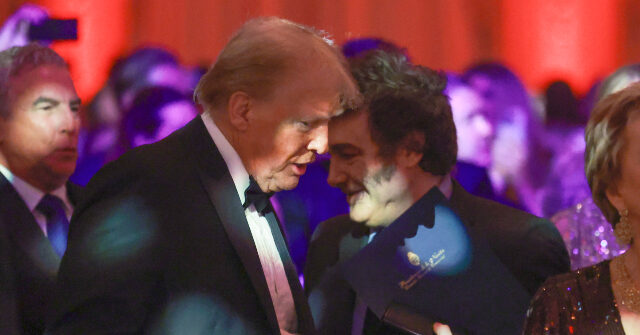During his closing address at the Conservative Action Political Conference (CPAC) in Buenos Aires, Argentine President Javier Milei passionately called upon conservatives to engage in a “cultural battle” against leftism. He condemned socialism, attributing the failures of previous administrations, particularly those under Alberto Fernández, to disastrous socialist policies. Milei emphasized that in order to achieve sustainable governance, conservatives must not only focus on effective management but also actively confront and challenge the prevailing leftist ideologies. He warned that without addressing these ideological issues, political and administrative efforts would ultimately be in vain.
The CPAC event marked a significant moment in Argentina, gathering conservative leaders and activists for two days of speeches and discussions focused on restoring traditional values and governance principles. Important figures such as Security Minister Patricia Bullrich, Economy Minister Luis Caputo, and international personalities like Santiago Abascal of Spain’s Vox Party and Stephen K. Bannon participated, showcasing a united front for conservative ideas. Milei’s closing speech encapsulated the conference’s themes while laying out a framework of actions necessary to combat leftism—a threefold strategy that revolves around effective government management, political action, and, crucially, the cultural battle.
Milei reflected on the historical context of leftist encroachment, citing the aftermath of the Cold War and the notion of the “end of history,” which led many to underestimate the persistent threat of socialism. He critiqued the lack of a robust conservative response that allowed leftist figures to infiltrate universities, media, and culture unchecked. According to Milei, this lack of ideological resistance resulted in the normalization of leftist narratives that have permeated the socio-political landscape, ultimately hindering conservative efforts to reclaim that ground.
The Argentine president pointed to several leftist leaders across Latin America, including his predecessors and their policies, noting the deleterious impact of such administrations on national welfare. He described these leaders as part of a broader, harmful legacy influenced primarily by figures like Fidel Castro. By highlighting historical and contemporary examples, Milei illustrated a systemic failure of conservative movements to articulate a cohesive cultural message, which has contributed to the political success of leftist agendas across the region. He warned that political correctness has been effectively imposed, overshadowing conservative perspectives.
Milei articulated his belief that current global political dynamics present a “historic opportunity” for conservatives to effect change, akin to the post-Berlin Wall era. However, he asserted that this opportunity will be squandered without a concerted effort to engage in the cultural battlefield. He argued that strengthening intellectual and ideological foundations is crucial for resistance against leftist ideologies, stating that mere political organization is insufficient. The Argentine leader underscored the importance of fortifying one’s ideas to withstand ideological onslaughts, portraying cultural engagement as indispensable for long-term success.
In conclusion, Milei’s address called for a revival of conservative principles, positioning Argentina as a potential leader in a global resurgence of freedom and democracy. He conveyed a sense of urgency, suggesting that the world is engulfed in a struggle for ideological enlightenment, which Argentina could illuminate. By invoking themes of freedom and resilience, he rallied conservatives to not only reclaim cultural influence but also to become a leading example for the West. As he concluded with fervent declarations of liberty, Milei’s speech crystallized a vision of a stronger, ideologically fortified future for Argentina and beyond, reflecting a commitment to countering the pervasive influence of socialism in society.

